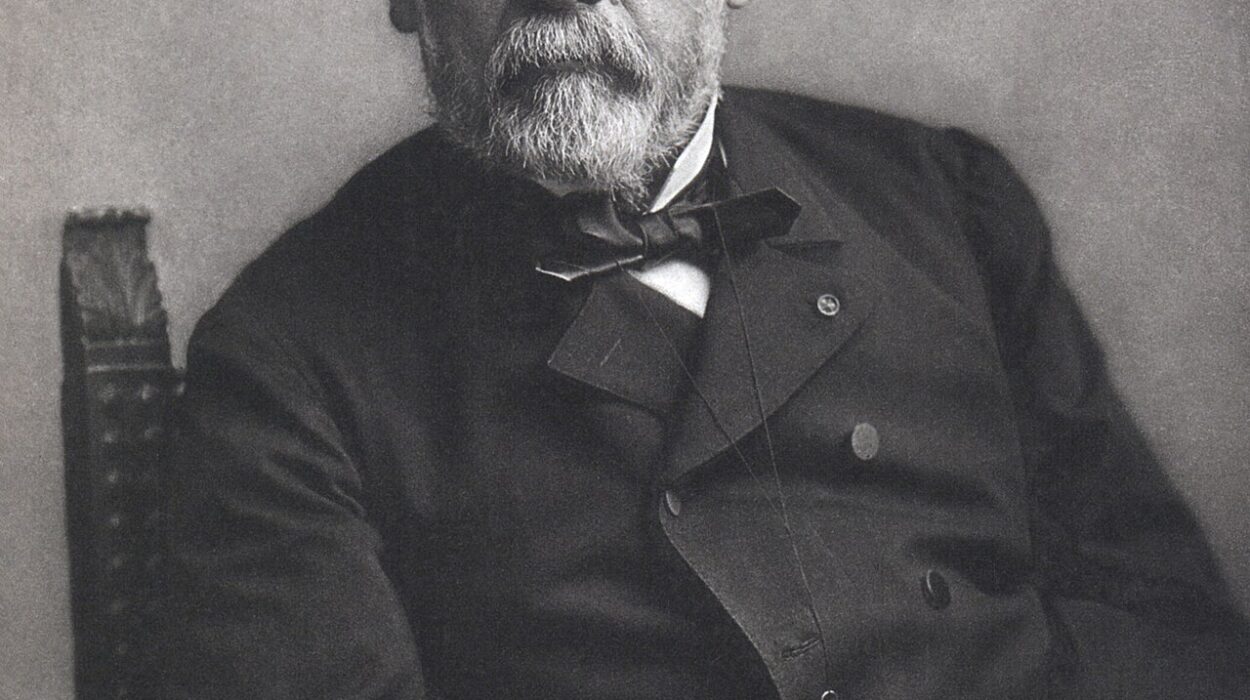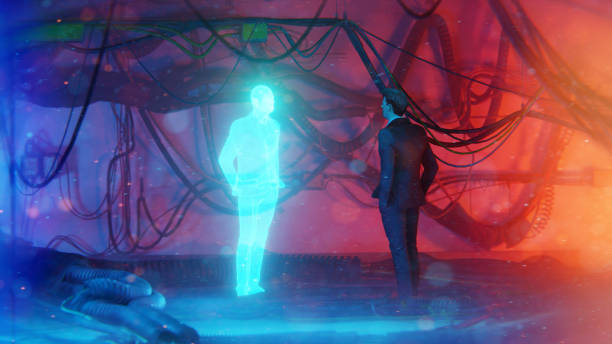From the moment our ancestors struck two stones together to create fire, humanity’s story has been one of invention, discovery, and transformation. Technology is the language of progress—the tool through which we shape our world, extend our senses, and express our boundless imagination. It defines how we communicate, how we think, and how we dream.
Every era of civilization is marked by a breakthrough—a spark that forever changes how humans live and understand their place in the universe. From the wheel to the microchip, from the printing press to artificial intelligence, each discovery builds upon the last, weaving an ever-evolving web of innovation that connects past, present, and future.
Here are ten of the most important technological discoveries that redefined humanity—not just as a species of thinkers, but as creators capable of changing reality itself.
1. The Wheel – The Birth of Movement and Civilization
It’s hard to imagine a world without wheels. Every car, every turbine, every piece of machinery owes its existence to this ancient invention. Yet the wheel, simple as it seems, was not an obvious discovery—it took human ingenuity to imagine a circular object that could rotate freely while carrying a load.
The first known wheel dates back to around 3500 BCE in Mesopotamia, used initially for pottery rather than transportation. But soon, humans realized its potential. The combination of the wheel and axle transformed trade, agriculture, and warfare. Carts could now carry goods across vast distances; chariots redefined military power; and grinding wheels helped process grains to feed growing civilizations.
The wheel became more than a tool—it became a symbol of progress, of motion, and of continuity. It laid the foundation for mechanical engineering, transportation, and the dynamic world we live in today.
Without the wheel, there would be no cars, no turbines, no pulleys, no gears—none of the machinery that drives modern civilization. It represents humanity’s first true triumph over the limits of nature, an idea that rolled us into the future.
2. The Printing Press – The Revolution of Knowledge
In 1440, Johannes Gutenberg changed the course of human history with his invention of the printing press. Before Gutenberg, books were copied by hand—a process so slow and expensive that only the elite had access to written knowledge. But with the printing press, ideas could be replicated, shared, and preserved at an unprecedented scale.
The first book ever mass-produced, the Gutenberg Bible, marked the dawn of an intellectual revolution. Knowledge was no longer confined to monasteries and scholars—it spread to the masses. The printing press fueled the Renaissance, ignited the Reformation, and laid the groundwork for modern science by enabling scholars to share discoveries across borders.
In essence, the printing press democratized knowledge. It turned information into power and literacy into liberation. It created newspapers, literature, and education systems, empowering generations to think freely.
Every smartphone screen, every webpage, every blog post today is an echo of Gutenberg’s invention. The printing press taught humanity the most profound lesson: ideas are the true engines of progress.
3. Electricity – The Spark That Lit the Modern World
Electricity was not invented—it was discovered, harnessed, and mastered through centuries of curiosity and experimentation. Ancient civilizations noticed static electricity and lightning, but it wasn’t until the 18th and 19th centuries that pioneers like Benjamin Franklin, Alessandro Volta, Michael Faraday, and Nikola Tesla transformed it into a usable force.
Franklin’s kite experiment in 1752 revealed that lightning was electrical in nature. Volta’s invention of the electric battery in 1800 gave birth to the first steady current. Faraday’s electromagnetic induction, and later Tesla’s alternating current system, made it possible to generate and transmit electricity across vast distances.
Electricity became the bloodstream of modern civilization. It powers homes, cities, industries, and communication networks. It allows us to see at night, preserve food, perform surgeries, and connect continents.
More than any other discovery, electricity symbolizes transformation—the invisible force that makes the modern world visible. It changed human life from dawn to dusk, making the impossible possible and the ordinary extraordinary.
4. The Steam Engine – The Power Behind the Industrial Revolution
The steam engine was more than a machine—it was the heart that powered the Industrial Revolution. Invented in the late 17th century and perfected by James Watt in the 18th century, it turned the raw energy of steam into mechanical motion, reshaping every aspect of society.
Before the steam engine, human and animal labor drove production. After it, machines took over. Steam engines powered factories, ships, and locomotives, enabling mass production and global transportation. They fueled the rise of cities, the expansion of empires, and the birth of the modern economy.
The steam engine symbolized freedom from natural limits. It allowed humanity to control energy in a way never before imagined. It also set the stage for later inventions—electric generators, automobiles, and airplanes—all descendants of that first puff of steam.
It wasn’t just a technological discovery; it was a revolution of mindset. For the first time, humans realized they could not only adapt to nature but also command it. The world would never move at the same pace again.
5. The Telephone – Connecting Voices Across the World
When Alexander Graham Bell made the first successful telephone call in 1876, speaking the words, “Mr. Watson, come here, I want to see you,” he unknowingly ushered in an era where distance no longer silenced communication.
Before the telephone, messages traveled slowly—by letter, telegraph, or courier. Bell’s invention turned sound into electric signals, allowing voices to travel instantaneously over wires. It transformed business, relationships, and global connectivity.
The telephone shrank the world. Families could speak across oceans, leaders could negotiate in real time, and ideas could spread faster than ever before. It became the backbone of modern communication systems, paving the way for mobile phones, the internet, and digital communication.
More than a machine, the telephone was an emotional revolution—it gave humanity a voice across distance, proving that technology could not only inform but connect hearts.
6. The Computer – The Mind Made Machine
Few inventions have redefined human life as completely as the computer. What began as a calculating device evolved into an artificial extension of human intelligence.
In the early 19th century, Charles Babbage designed the first mechanical computer, the Analytical Engine—a vision ahead of its time. But it wasn’t until World War II that electronic computers like ENIAC emerged, capable of performing thousands of calculations per second.
The 20th century saw computers shrink from room-sized behemoths to personal devices, and later to smartphones that fit in our pockets. The invention of the microprocessor in the 1970s made computing universal.
Computers are now the foundation of everything—communication, medicine, education, entertainment, science, and space exploration. They’ve given birth to artificial intelligence, data analysis, and digital creativity.
In a sense, computers mirror us—they process, learn, and evolve. But unlike humans, they never sleep. They represent the merging of logic and imagination, turning thought into action and data into discovery.
7. The Internet – The Web That Binds Humanity
The Internet is perhaps the most transformative discovery of the modern era—a digital nervous system connecting the entire planet. It began humbly in the 1960s as ARPANET, a U.S. Defense Department experiment to share data between computers. But it soon grew into something unimaginable: a global web of information, communication, and innovation.
By the 1990s, the World Wide Web—created by Tim Berners-Lee—opened the floodgates to global knowledge. Today, more than five billion people are connected through the Internet, exchanging ideas, emotions, and creativity at the speed of light.
The Internet turned the world into a shared space of learning and collaboration. It reshaped economies, politics, and cultures. It gave rise to social media, e-commerce, streaming, and remote work.
But more profoundly, it gave humanity a collective consciousness—a way for thoughts, art, and voices to transcend time and geography. It is the digital mirror of civilization, reflecting our brilliance and our flaws, our unity and our chaos.
The Internet is not just a tool; it is an extension of the human mind, endlessly expanding.
8. Vaccination and Biotechnology – Rewriting Life Itself
Few discoveries have saved as many lives as vaccination. When Edward Jenner developed the first vaccine against smallpox in 1796, he sparked a medical revolution that continues to shape our survival.
Vaccines work by training the immune system to recognize and fight off diseases before they cause harm. This concept evolved into the vast field of biotechnology—the manipulation of living systems to improve health, agriculture, and the environment.
Today, biotechnology allows us to edit genes, grow organs, and even design personalized medicine. The discovery of CRISPR-Cas9—a molecular “scissor” that can precisely edit DNA—has opened new possibilities once confined to science fiction.
The COVID-19 pandemic showed biotechnology’s power in real time. Within months, scientists developed mRNA vaccines that saved millions of lives—a triumph of collaboration, technology, and human spirit.
Biotechnology isn’t just about curing diseases—it’s about understanding life’s code and learning to rewrite it responsibly. It’s the frontier where biology and technology meet, and where the next chapter of human evolution may be written.
9. The Airplane – Conquering the Sky
For centuries, humans dreamed of flight, watching birds soar and imagining the freedom of the skies. That dream became reality in 1903 when the Wright brothers achieved the first powered flight at Kitty Hawk, North Carolina.
Their fragile wooden plane flew just 120 feet—but it changed the world. Within a few decades, airplanes connected continents, reshaped warfare, and opened new frontiers of exploration.
Aviation accelerated globalization. It brought people and cultures together, made trade faster, and turned the planet into a connected home. Today’s jetliners and spacecraft are direct descendants of that first trembling flight.
But beyond technology, flight represents something spiritual—the human refusal to accept limits. Every airplane that lifts into the sky carries the weight of that eternal dream: to rise above the earth and see the world from a new perspective.
10. Artificial Intelligence – The Dawn of Thinking Machines
Artificial Intelligence (AI) is not just another invention—it’s a transformation of thought itself. Once confined to science fiction, AI has now become a central force in modern life, from virtual assistants to self-driving cars, medical diagnostics, and creative art.
The dream of AI began in the mid-20th century when pioneers like Alan Turing and John McCarthy envisioned machines that could learn, reason, and adapt. Today, machine learning algorithms allow computers to recognize faces, translate languages, compose music, and even write poetry.
AI represents both the culmination and the continuation of every technological discovery that came before it. It embodies the wheel’s motion, the printing press’s knowledge, the computer’s logic, and the Internet’s connectivity.
Its promise is breathtaking: solving global challenges, predicting diseases, and designing sustainable futures. Yet it also raises deep questions about ethics, consciousness, and the essence of being human.
Artificial intelligence is humanity looking into its own reflection—seeing both brilliance and danger. It is the next great chapter in the story of technology, where creation begins to understand itself.
The Threads That Connect Them All
These ten discoveries may seem separate—spanning thousands of years and countless fields—but they are connected by one invisible thread: human curiosity. Every spark of invention begins with a question, a moment of wonder, a refusal to accept the impossible.
The wheel made us move. The printing press made us think. Electricity made us see. The computer made us create. And AI, perhaps, will make us reflect.
Technology, in its purest form, is not cold machinery—it’s the expression of human spirit. It carries our dreams, our fears, our love of beauty, and our hunger for knowledge. Each discovery is a mirror of who we are and what we aspire to be.
The Future Beyond Discovery
As we look forward, new frontiers await: quantum computing, space colonization, renewable energy, and the fusion of biology with technology. The pace of discovery accelerates each decade, but the essence remains the same—our desire to understand and transform.
The story of technology is, ultimately, the story of humanity’s imagination made real. Every invention, every algorithm, every glowing screen reflects the same eternal message: that the universe is not just something we live in—it’s something we can shape.
The discoveries that brought us here are more than milestones; they are promises. Promises that as long as humans can dream, there will always be another horizon to reach, another mystery to unravel, and another invention waiting to change the world.






